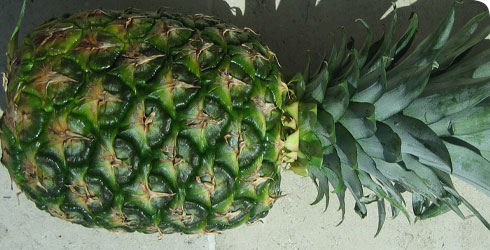Ananas comosus (pineapple)
The pineapple is a popular exotic fruit that is often used in the preparation of tropical cocktails, appetisers, desserts, and in cooking.
It was first discovered by the Tupi-Guaraní Indian tribe, and then in 1493 on Guadaloupe Island off the coast of Mexico during the second voyage of Christopher Columbus.
It was first named pineapple in 1498 by European explorers, who noticed its resemblance to the reproductive organs (pine cones) of conifer trees. But it was classified by Carl von Linnaeus as Bromelia comosa L., and then in 1917 Elmer Drew Merril renamed the plant Ananas comosus (L.) Merr.
Ananas comosus is the most economically important plant in the family Bromeliaceae. The family is divided into 3 subfamilies:
- Pitcairnioideae
- Tillandsioideae
- Bromelioideae
A. comosus belongs to the subfamily Bromelioideae.
Species detail
-

Taxonomy
Ananas comosus is an unusual looking plant that has flowers and petals in sets of 3. Discover more about the make-up of its tasty fruit.
-

Distribution
Pineapple plants probably originated in the Paraná-Paraguay river drainages and Christopher Columbus later brought it to Europe. Find out more.
-

Biology
Pineapples have developed an unusual way of absorbing carbon-dioxide to help them survive in dry conditions. Discover what it is, and find out what pineapple farmers can do to increase their crop yields.
-

Uses
Pineapple is used in many ways, not just in cocktails and desserts. Explore this plant’s active properties and discover its many medicinal and practical uses.
-

References
Get reference material for Ananas comosus.
Images
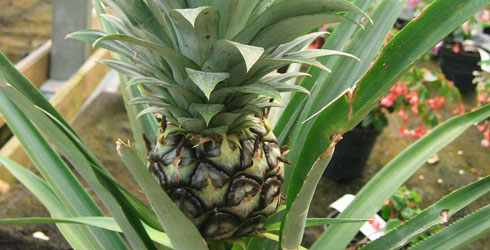
Ananas comosus cultivated in Ventnor Botanical Garden, Isle of Wight, United Kingdom.
© Dr Rhinaixa Duque-Thus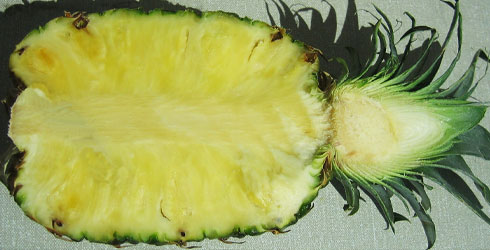
Ananas comosus, longitudinal section.
© Dr Rhinaixa Duque-Thus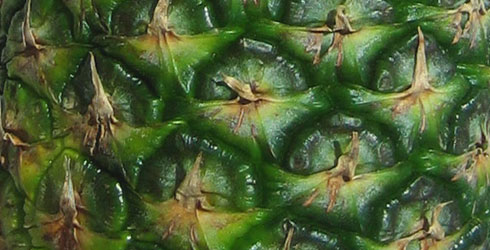
Ananas comosus, fruit.
© Dr Rhinaixa Duque-Thus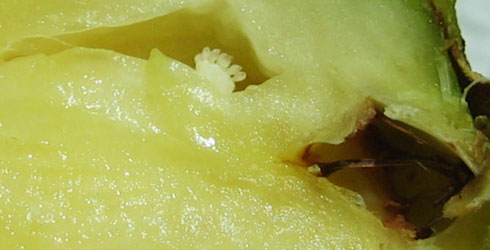
Ananas comosus, longitudinal section and detail of the ovules and flower remains.
© Dr Rhinaixa Duque-ThusAuthor
Rhinaixa Duque-Thues
A word from the author
"Ananas comosus (L.) Merr. is a member of the subfamily Bromelioideae, family Bromeliaceae. It is very important to notice that members of this family significantly influence important forest processes and provide substrate and other resources for much canopy-based fauna. Their preservation is vital to broader conservation efforts."
